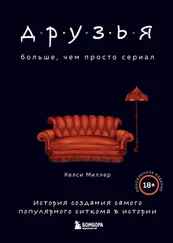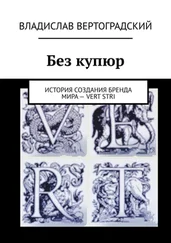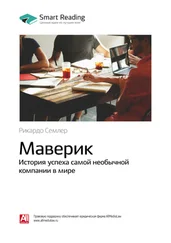–. 6 vols.; Amsterdam: Pierre Brunel, 1720.
Dupâquier, Jacques, et al. Histoire de la population frangaise. Vol. 2: De la Renaissance à 1789. Paris: PUF, 1988.
Dupoux, Albert. Sur les pas de Monsieur Vincent: Trois cents ans d’histoire parisienne de l’enfance abandonée. Paris: Revue de l’Assistance publique de Paris, 1958.
Dupuy-Demportes, Jean-Baptiste. Histoire générale du Pont-Neuf. London: 1750.
Edgeworth, Maria. Maria Edgeworth in France and Switzerland. Edited by C. Colvin. Oxford: Clarendon Press, 1979.
Entretiens galants ou conversations sur la solitude. 2 vols. Paris: Jean Ribou, 1681.
État général des baptêmes, mariages, et mortuaires des paroisses de la ville et fauxbourgs de Paris. Paris: F. Léonard, 1670.
Evelyn, John. The Diary of John Evelyn. Edited by E. S. de Beer. 5 vols. Oxford: Clarendon Press, 1955.
–. The State of France. London: G. Bedest and C. Collins, 1652.
Félibien, André. Des Principes de l’architecture, de la sculpture, de la peinture. Paris: Jean-Baptiste Coignard, 1676.
Félibien, Father Michel. Histoire de la ville de Paris, depuis son commencement connu jusqu’a present. 5 vols. Paris: Guillaume Desprez and Jean Desessartz, 1725.
Feuillet, Alphonse. La Misère au temps de la Fronde. Paris: Librairie Académique, 1862.
Field, Cynthia R. «Interpreting the Influence of Paris on the Planning of Washington, D.C., 1870–1930». In Paris on the Potomac: The French Influence on the Architecture and Art of Washington, D.C. Edited by I. Gournay. Athens, Ohio: Ohio University Press/The U.S. Capitol Historical Society, 2007: 117–38.
Flaubert, Gustave. Madame Bovary. Translated by E. Aveling and P. de Man. New York: W. W. Norton, 2004.
–. Madame Bovary. 1910. Paris: Louis Conard, 1930.
Fleury, Michel. «Notice sur la vie et l’oeuvre de Sauval». «Si le roi m’avait donné sa grande ville». Paris: Maison Neuve et Larose, 1974.
Forbonnais, François Véron de. Recherches sur les finances de la France entre 1585 et 1721. 2 vols. Basel: Frères Cramer, 1758.
Fougeret de Monbron, Louis Charles. Le Cosmopolite, ou Le Citoyen du monde. 1750. London, 1753.
Fournier, Edouard. Histoire du Pont-Neuf. 2 vols. Paris: E. Dentu, 1862.
–. Les Lanternes. Paris: E. Dentu, 1854.
Franklin, Alfred. La Vie privée d’autrefois: Les Magasins de nouveautés. 4 vols. Paris: Librairie Plon, 1894.
[Fremin, Michel de.] Mémoires critiques d’architecture. Paris: Charles Saugrain, 1702.
Freud, Sigmund. The Interpretation of Dreams. 1900. Volumes 4–5. Standard Edition of the Complete Psychological Works of Sigmund Freud. 24 vols. London: Hogarth Press and the Institute of Psycho-Analysis, 1953.
Gady, Alexandre, ed. De la Place Royale à la Place des Vosges. Paris: Action Artistique de la Ville de Paris, 1996.
Galinou, Mireille, and John Hayes. London in Paint: Oil Paintings in the Collection at the Museum of London. London: Museum of London, 1996.
Galland, Antoine. Les Mille et une nuits. 2 vols. Paris: Veuve Barbin, 1704.
Gallet-Guerne, Danielle, and Michèle Bimbenet-Prival. Balcons et portes cochères à Paris. Paris: Archives Nationales, 1992.
Gaufreteau, Jean de. Chronique bordeloise. Edited by J. Delpit. 2 vols. Bordeaux: Lefebvre, 1877.
Gazette, La. Paris: Bureau d’Adresse, 1657.
Giedion, Sigfried. «Sixtus V and the Planning of Baroque Rome». Architectural Review. No. 3. 1952: 217–26.
Girouard, Mark. Cities and People: A Social and Architectural History. New Haven: Yale Uni versity Press, 1985.
[Grimoard, comte de.] Lettre de M. le marquis de Carraccioli à M. d’Alembert. N.p., c. 1781.
Guiffrey, Jules, ed. Comptes des bâtiments du roi, sous le règne de Louis XIV. 5 vols. Paris: Im primerie Nationale, 1881–1901.
Harding, Vanessa. «The Population of London, 1550–1700». London Journal. 15: 2 (1990): 111–28.
Hautel, Charles Louis d’. Dictionaire du baslangage ou des manières de parler usités par le peuple. Paris: d’Hautel, 1808.
Hauteroche, Noël Le Breton, Sieur de. La Dame invisible, ou l’esprit folet. 1684. Paris: Pierre Ribou, 1688.
Henri IV. Recueil des lettres missives de Henri IV. Edited by Berger de Xivrey. 8 vols. Paris: Librairie Impériale, 1853.
Henry, Pierre. Pour et contre du mariage, Le. Lille: F. Fievet, 1694.
Herlaut, Commandant. «L’Éclairage des rues à Paris». Mémoires de la Société de l’Histoire de Paris et de L’lle-de-France. Paris: H. Champion, 1916. Vol. XLIII, pp. 129–265.
Heyl, Christoph. «The Metamorphosis of the Mask in Seventeenthand Eighteenth-Century London». In E. Tseëlon. Masquerade and Identities: Essays in Gender, Sexuality, and Marginality. London and New York: Routledge, 2001: 114–34.
Heylyn, Peter. A full relation of two journeys: One into the Main-Land of France; the other into some of the adjacent Islands. London: E. Cotes, 1656.
Hillairet, Jacques. La Rue Saint-Antoine. Paris: Éditions de Minuit, 1970.
Histoire du père La Chaize. Cologne: Pierre Marteau, 1693.
Howard, Jean. Theater of a City: The Places of London Comedy, 1598–1642. Philadelphia: University of Pennsylvania Press, 2009.
Hume, David. Political Essays. Edited by K. Haakonssen. Cambridge: Cambridge University Press, 1994.
Hunt, Margaret. «The Walker Beset: Gender in the Early Eighteenth-Century City». Walking the Streets of Eighteenth-Century London. Edited by C. Brant and S. Whyman. Oxford: Oxford University Press, 2007: 120–30.
Hurtaut, Pierre Thomas Nicolas, and Magny. Dictionnaire historique de la ville de Paris. 4 vols. Paris: Moutard, 1779.
Hyde, Ralph. Gilded Scenes and Shining Prospects: Panoramic Views of British Towns, 1575–1900. New Haven: Yale Center for British Art, 1985.
Interdiction de mettre des immondices. Registres du conseil d’état. Paris, January 21, 1679.
Jacobs, Jane. The Death and Life of Great American Cities. New York: Random House, 1961.
Johnson, James H. Venice Incognito: Masks in the Serene Republic. Berkeley and Los Angeles: University of California Press, 2011.
Jones, Colin. Paris: Biography of a City. London: Allen Lane, 2004.
[Jones, Erasmus.] Luxury, Pride, and Vanity, the Bane of the British Nation. London: E. Withers, 1736.
Jouhaud, Christian. Mazarinades: La Fronde des mots. Paris: Éditions Aubier Montaigne, 1985.
Klaits, Joseph. Printed Propaganda under Louis XIV: Absolute Monarchy and Public Opinion. Princeton, NJ: Princeton University Press, 1976.
Konvitz, Josef. Cartography in France, 1660–1848. Chicago: University of Chicago Press, 1987.
La Bruyère, Jean de. Les Caractères. Edited by E. Bury. Paris: Livre de Poche Classique, 1995.
La Caille, Jean de. Description de Paris en vingt planches. Paris: Jean de La Caille, 1714.
Lambeau, Louis. La Place Royale. Paris: H. Daragon, 1906.
Lancaster, Henry Carrington. A History of French Dramatic Literature in the Seventeenth Century. 1936. New York: Gordian Press, 1966.
Langenskiold, Eric. Pierre Bullet, the Royal Architect. Stockholm: Almquist and Wiksell, 1959.
La Roche, Sophie von. Sophie in London, 1786. 1788. Translated by C. Williams. London: Jonathan Cape, 1933.
Читать дальше
Конец ознакомительного отрывка
Купить книгу
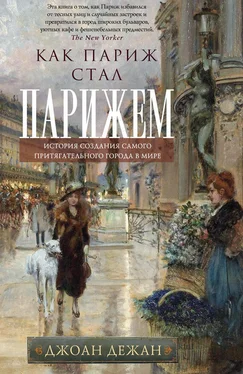


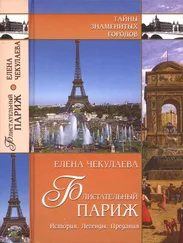
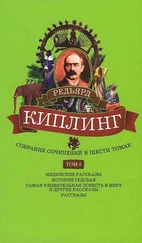
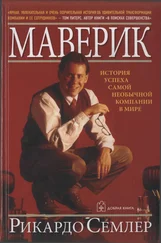

![Келси Миллер - Друзья. Больше, чем просто сериал [История создания самого популярного ситкома в истории] [litres]](/books/404036/kelsi-miller-druzya-bolshe-chem-prosto-serial-is-thumb.webp)

